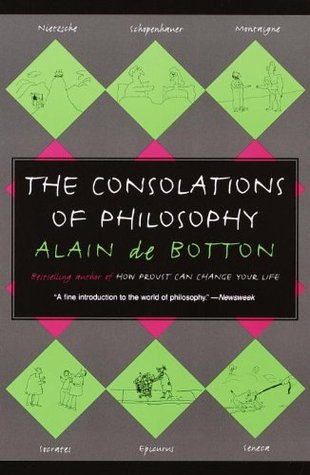More on this book
Community
Kindle Notes & Highlights
For Socrates’ enemies, it was more than coincidence that many of the dictators had once spent time with the philosopher.
Yet there is a danger that Socrates’ death will seduce us for the wrong reasons. It may foster a sentimental belief in a secure connection between being hated by the majority and being right.
The validity of an idea or action is determined not by whether it is widely believed or widely reviled but by whether it obeys the rules of logic. It
if we have money without friends, freedom and an analysed life, we will never be truly happy.
The following method of inquiry must be applied to every desire: What will happen to me if what I long for is accomplished? What will happen if it is not accomplished?
Why, then, if expensive things cannot bring us remarkable joy, are we so powerfully drawn to them? Because of an error similar to that of the migraine sufferer who drills a hole in the side of his skull: because expensive objects can feel like plausible solutions to needs we don’t understand.
We receive little encouragement to attend to modest gratifications – playing with a child, conversations with a friend, an afternoon in the sun, a clean house, cheese spread across fresh bread (‘Send me a pot of cheese, so that I may have a feast whenever I like’).
the heart of every frustration lies a basic structure: the collision of a wish with an unyielding reality.
And in the Senecan view what makes us angry are dangerously optimistic notions about what the world and other people are like.
Seneca more wisely asks us to consider that bad things probably will occur, but adds that they are unlikely ever to be as bad as we fear.
The idea that a wise person should be able to walk away from all Fortune’s gifts calmly was Stoicism’s most extreme, peculiar claim, given that Fortune grants us not only houses and money but also our friends, our family, even our bodies:
for Seneca, wisdom lies in correctly discerning where we are free to mould reality according to our wishes and where we must accept the unalterable with tranquillity.
When a wise man is told that his suitcase has been lost in transit, he will resign himself in seconds to the fact.
We may be powerless to alter certain events, but we remain free to choose our attitude towards them, and it is in our spontaneous acceptance of necessity that we find our distinctive freedom.
scholarship is the means of making known to us, while still in this world, the infinity of matter, the immense grandeur of Nature, the heavens, the lands and the seas.
Other lands may return to us a sense of possibility stamped out by provincial arrogance; they encourage us to grow more acceptable to ourselves.
[The intellect] does not penetrate into the secret workshop of the will’s decisions. It is, of course, a confidant of the will, yet a confidant that does not get to know everything.
One has only to make a hundred or so sketches for novels, none longer than two pages but of such distinctness that every word in them is necessary; one should write down anecdotes every day until one has learnt how to give them the most pregnant and effective form; one should be tireless in collecting and describing human types and characters; one should above all relate things to others and listen to others relate, keeping one’s eyes and ears open for the effect produced on those present, one should travel like a landscape painter or costume designer … one should, finally, reflect on the
...more
Only thoughts which come from walking have any value’),
One can dispose of one’s drives like a gardener and, though few know it, cultivate the shoots of anger, pity, curiosity, vanity as productively and profitably as a beautiful fruit tree on a trellis. (Ill. 22.19)
We should not feel embarrassed by our difficulties, only by our failure to grow anything beautiful from them.
he had gardened the pain
Christians, in their value system, had given precedence to what was easy, not what was desirable, and so had drained life of its potential.
To continue to believe in what we wish for, even when we do not have it, and may never. Put


